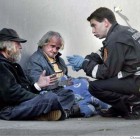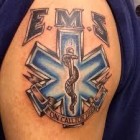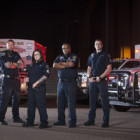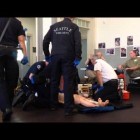
Mar 5, 2015
In my twelve years from Springfield, I heard the words “start us a 7” come over the police scanner more times than I could count. The number seven was the radio code for an ambulance. Usually what this meant was the cops had found some indigent on the side of the road that they wanted transported to the hospital, or some assault victim who needed a routine transport for a stitch or two. In a somewhat related incident, a friend shared a conversation that they were privy to that occurred between a fire and EMS dispatcher about a person stuck in the middle of the road in a broken motorized wheelchair. I am paraphrasing but it went something like this: Police Dispatcher: “We don’t have any way to move the wheelchair. This is an EMS matter.” EMS Dispatcher: “Neither do we. It looks like a traffic problem to us.” As always, the outcome was as expected: paramedics responded (eventually. . . it was a busy day) and had to deal with something that was well outside of their scope of practice. Or how about this one that happened more times than I can count in my career: You respond to a college campus for the intoxicated student. On arrival, you find a mildly inebriated individual who is being sent by the campus police because it is the “campus policy” that intoxicated students get transported. The student is defiant, and they are told by the police officer on scene that they can make a choice “hospital or jail.” Mr. Defiant decides that he is going to be daring and he chooses jail. The police officer responds by putting the patient’s hands behind his back and slapping the cuffs on him. To you and your partner’s surprise though he does not put the patient in the back of his cruiser. Instead, he marches him straight to the back of your ambulance where he sternly lectures the student, removes the cuffs and sends him off to the ER in your more than capable hands. I am not saying that these people do not need help. The problem though is their access point for their desired help, whether...









